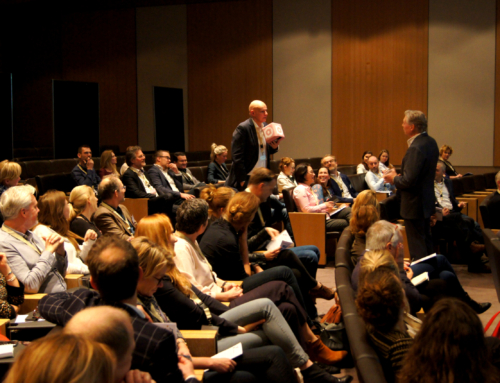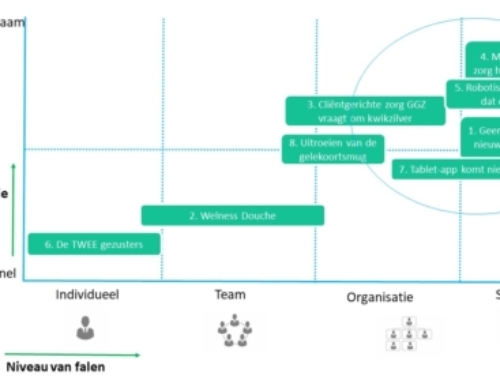At a gathering last month over drinks and finger food, a specialist at the World Bank related the story of how female weavers in a remote Amazonian region of Guyana had against all odds built themselves a thriving global online business selling intricately woven hammocks for $1,000 apiece.
The state phone company had donated a communications center that helped the women find buyers around the world, selling to places like the British Museum. Within short order, though, their husbands pulled the plug, worried that their wives’ sudden increase in income was a threat to the traditional male domination in their society.
Technology’s potential to bring about social good is widely extolled, but its failures, until now, have rarely been discussed by nonprofits who deploy it. The experience in Guyana might never have come to light without FailFaire, a recurring party whose participants revel in revealing technology’s shortcomings.
“We are taking technology embedded with our values and our culture and embedding it in the developing world, which has very different values and cultures,” Soren Gigler, the World Bank specialist, told those at the FailFaire event here in July.
Behind the events is a Manhattan-based nonprofit group, MobileActive, a network of people and organizations trying to improve the lives of the poor through technology. Its members hope light-hearted examinations of failures will turn into learning experiences — and prevent others from making the same mistakes.
“I absolutely think we learn from failure, but getting people to talk about it honestly is not so easy,” said Katrin Verclas, a founder of MobileActive. “So I thought, why not try to start conversations about failure through an evening event with drinks and finger foods in a relaxed, informal atmosphere that would make it seem more like a party than a debriefing.”
There is also a prize for the worst failure, a garish green-and-white child’s computer nicknamed the O.L.P.C. — for One Laptop Per Child — a program that MobileActive members regard as the emblem of the failure of technology to achieve change for the better. When Ms. Verclas held it up during last month’s party, the room erupted in laughter. (Jackie Lustig, a spokeswoman for O.L.P.C., said the organization did not consider its program a failure.)
With the prize in his sights, Tim Kelly, a technology specialist at the World Bank who had just flown in from South Africa, found himself in front of a screen displaying what looked like a line drawing of a bowl of spaghetti and meatballs but in fact was an effort to explain the roles and relationships of the many partners in the Global Capacity Building Initiative, a program aimed at building strong policies and regulatory environments to foster the expansion of the Internet in developing countries. “This is the point in the evening where I’m suddenly asking myself why I let myself be talked into this,” Mr. Kelly said.
He nonetheless gamely continued. One big problem with the project is that three groups raising money for it were more interested in raising money for themselves, Mr. Kelly said. “One raised money and when it finished doing that, took the money and went off and did its own work,” Mr. Kelly said.
The initiative had too many “players,” he continued. Donor countries wanted vastly different things. It was way too complex, he said, gesturing at the spaghetti bowl.
Next time, he said, he would advocate for an initiative that matched specific donors to specific projects and not work so hard to be all things to all people.
His eight minutes of torture over, Mr. Kelly returned to his chair, looking somewhat relieved.
Mr. Kelly’s employer, the World Bank, sponsored the event here last month.
“The idea is that not only should we be open about what we’re doing, but we should also be open about where we learn and our mistakes,” said Aleem Walji, practice manager for innovation at the World Bank. “The cost of not doing so is too high.”
Mr. Walji said he was surprised to find, when he joined the bank from Google last fall, that mistakes were rarely discussed, so different from the for-profit world, where failures are used to spur innovation.
Google, for example, has blogged about the failure of its Google Wave application on Aug. 4., saying that while it had “numerous loyal fans, Wave has not seen the user adoption we would have liked.”
“Wave has taught us a lot,” wrote Urs Hölzle, senior vice president for operations at Google.
Mr. Walji pointed out that “the private sector talks about failure freely and candidly,” while the nonprofit world “has to worry about donors who don’t want to be associated with failure and beneficiaries who may not benefit from admissions of failure.”
Next up, after Mr. Kelly, was Mahad Ibrahim, a researcher whose work was approved by the government of Egypt as part of a Fulbright Scholarship, helped assess an Egyptian government program to roll out telecenters across the country to increase access to the Internet. The program has grown to more than 2,000 such centers, from 300 in 2001.
But numbers alone can be deceiving. Mr. Ibrahim started his research by calling the centers. “The phones didn’t work, or you got a grocery store,” he said.
He headed for Aswan, where government records showed 23 telecenters. He found four actually working.
Mr. Ibrahim concluded that the program had failed because it did not take into account the rise of Internet cafes in Egypt and because the government had, in most cases, picked as partners nonprofit groups whose primary mission had little or nothing to do with the Internet, communications or technology.
The failure, in other words, was in not understanding the ecosystem in which the telecenters would be operating. “We dump hardware down and hope magic will happen,” said Michael Trucano, senior information and education specialist at the World Bank, whose offering to FailFaire was a list of the 10 worst practices he had encountered in his job.
His presentation clearly resonated with the attendees, who voted him the winner of the O.L.P.C.
“I guess it’s a dubious distinction,” Mr. Trucano said later, “but I thought it was an enjoyable evening and a useful way to talk about a lot of things that civil servants don’t like to talk about.”
This article has been revised to reflect the following correction:
Correction: August 19, 2010
An article on Tuesday about a recurring party whose participants revel in revealing technology’s shortcomings gave an incorrect affiliation from the party’s host for Mahad Ibrahim, a researcher who had helped assess an Egyptian government program to roll out telecenters across the country to increase access to the Internet. Mr. Ibrahim’s research was approved by the government of Egypt as part of a Fulbright Scholarship; he was not hired by the Egyptian government.
http://www.nytimes.com/2010/08/17/technology/17fail.html?_r=3&hp




